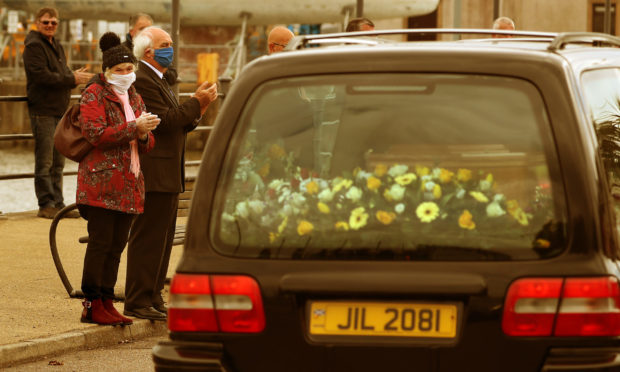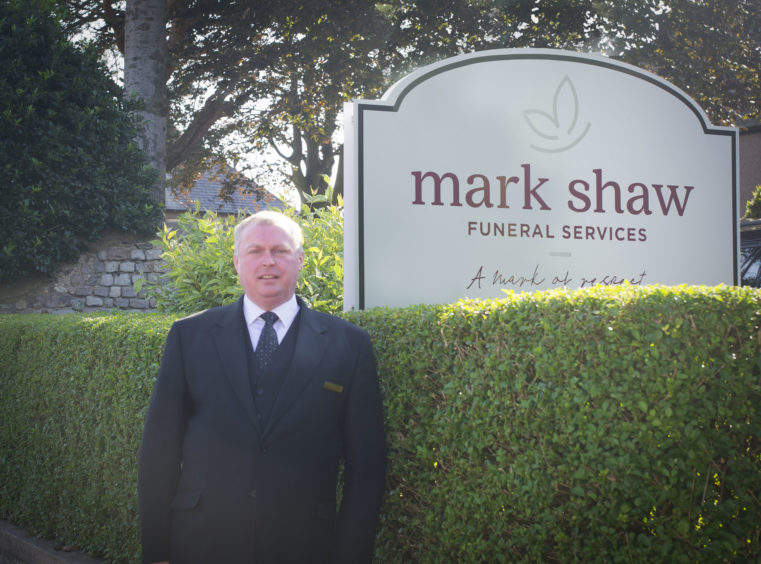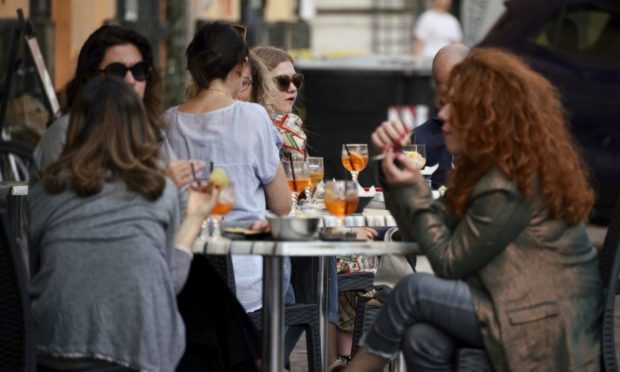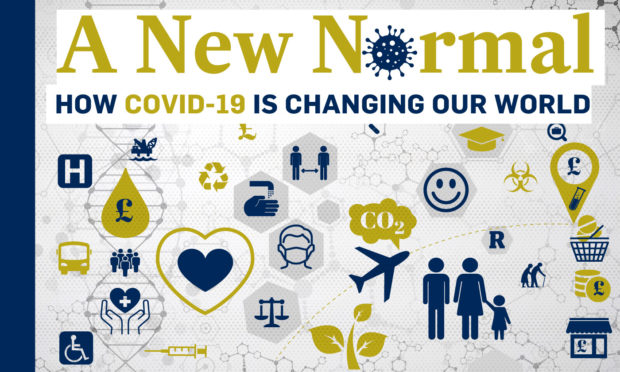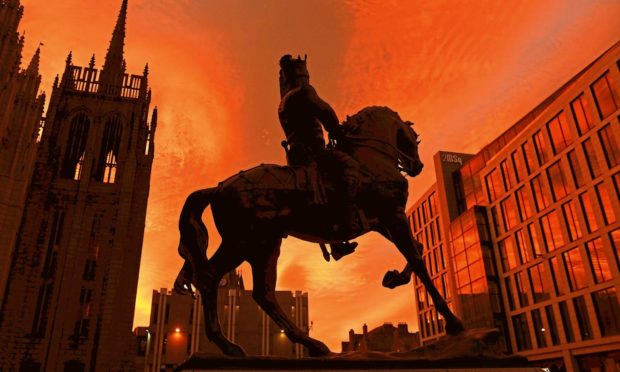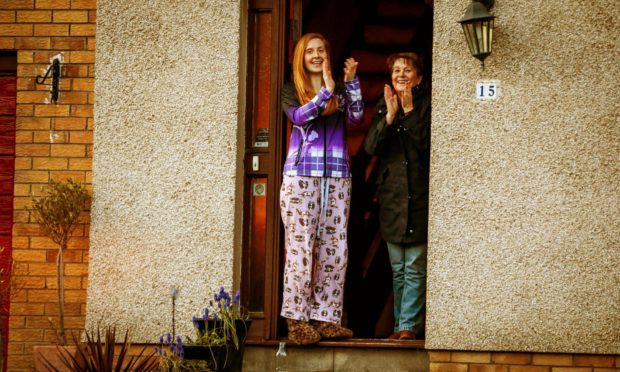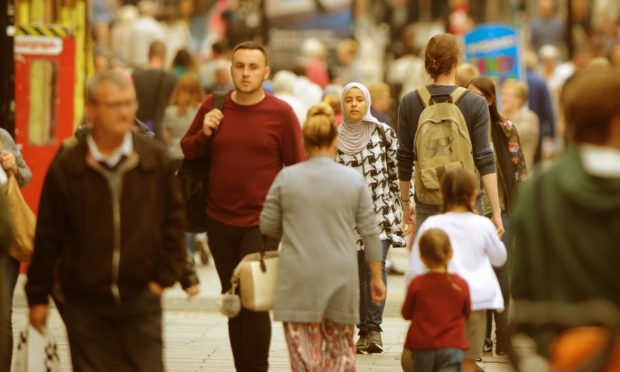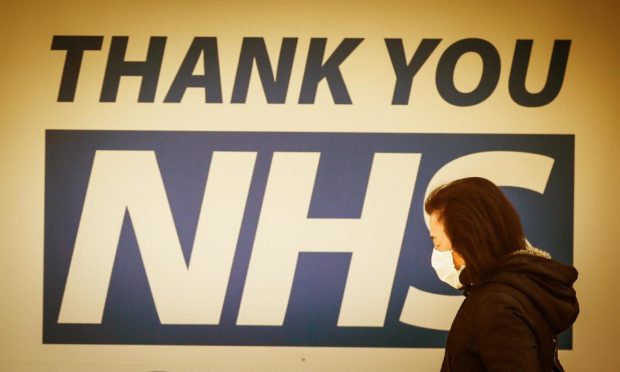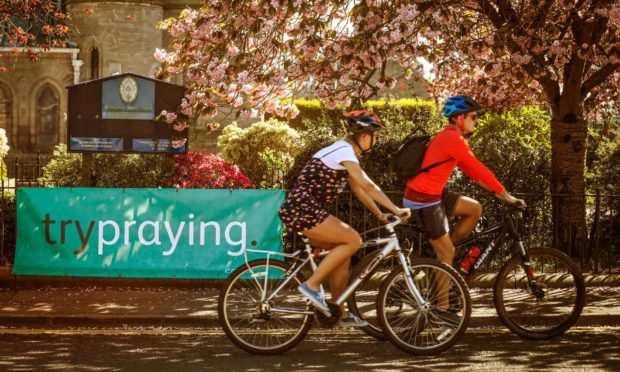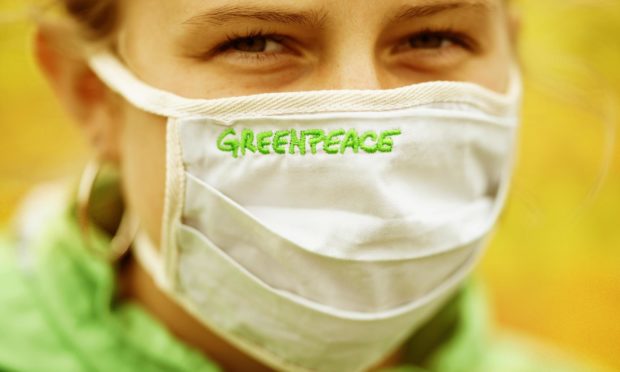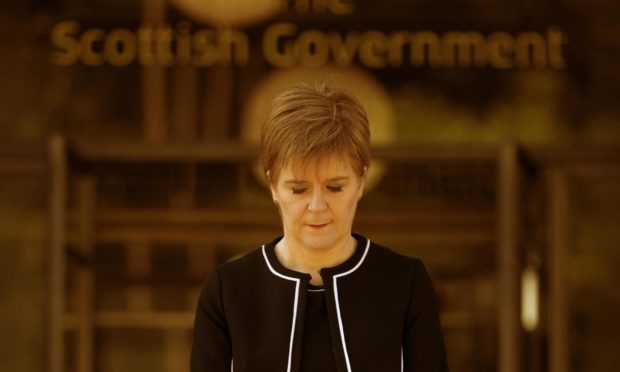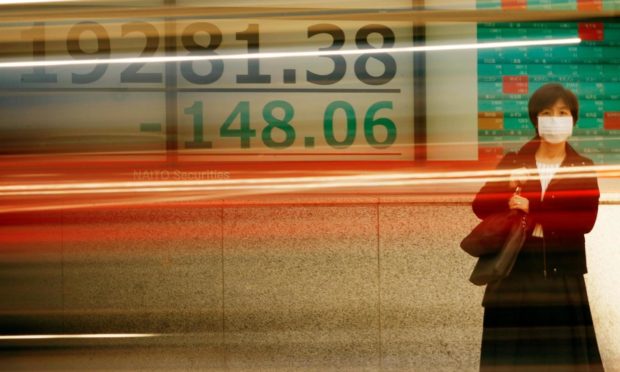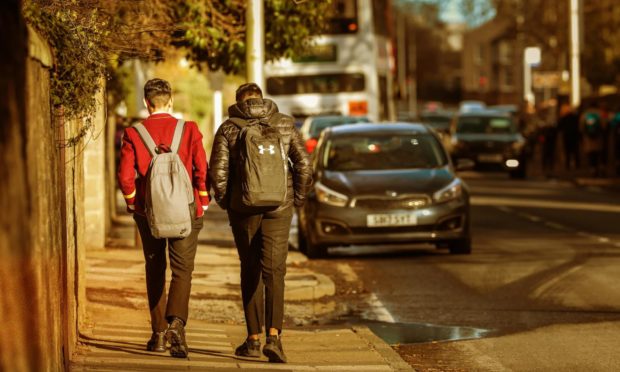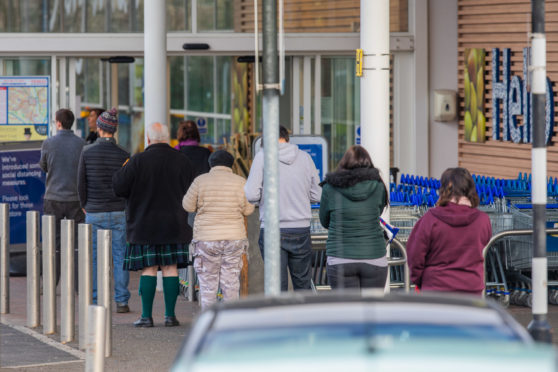With lockdown restrictions limiting the number of mourners able to pay their final respects to loved ones, Alastair Gossip explores whether the disruption could leave a permanent mark on how funerals are carried out
A north-east funeral director believes the coronavirus pandemic could make a lasting impression on how people mark the death of their loved ones.
Current social distancing rules only allowing immediate family to attend services and have halted many of the traditional practices we are accustomed to.

And Mark Shaw, of Mark Shaw Funeral Services, thinks the lockdown might change how some plan for funerals going forward – even once restrictions are lifted.
“I would be inclined to say that while funerals are not what might have been expected, there could be positives in a smaller, more intimate gathering,” he said.
- May 20, 2020
- May 19, 2020
- May 18, 2020
“While it is sad for many people who can’t attend a funeral at this time, and families are denied this sense of support and sharing of sympathy, they might be more creative about things if it’s just them and their nearest relatives – it can be very different but obviously very personal.
“Ministers and celebrants are still available but we are finding some families are choosing to speak and share memories among themselves given the numbers attending.”
During the disruption more attention has been given to elements of the day the bereaved can control, as they find creative ways to remember and celebrate the lives of loved ones.
Mr Shaw reports that more people are requesting the hearse starts at the family home or drives past a favourite spot or to a street where people are able to safely pay their respects from a distance.
Parts of services have even been held out the front of houses to allow neighbours to take part.
He added: “An occasional criticism of funerals is they sometimes feel a little routine or impersonal: but now more families are being creative.
“None of this didn’t happen before and we have had many hearses go past a football stadium, a workplace, the local pub or another special place over the years.
“But more people are thinking it could be a suitable option and I would be very pleased if this helps people see how much funerals can be personalised.
“The necessarily smaller gatherings are freeing families to express themselves differently, in a good way.
“It might last, but when restrictions are relaxed it might be more daunting to lead a service in front of 200 mourners at the crematorium.”
But while the lockdown has encouraged some to be creative, it has meant those with more traditional wishes have been left wanting.
Some mourners have vowed to hold memorial services at a future date when loved ones can be celebrated by a larger group of friends and family.
Smaller-scale funerals are being held in the meantime, amid warnings from the government that delay could lead to Scotland’s mortuaries being backlogged.
But for some, elements of the day will not be easily replicated.
On Lewis, the traditional Hebridean funeral walk has ceased temporarily.
In normal times, a double chain of male relatives, neighbours, and colleagues of the deceased line up to each take a turns carrying the coffin in a final act of respect.
During lockdown, funeral directors such as Alasdair Macrae of Stornoway firm Archibald Macrae, lift it straight to the hearse.
Mr Macrae said: “From our point of view it’s been very difficult, it’s not been easy at all.
“In these smaller places you tend to know a lot of the families and just now you can’t console them the way you normally would.
“It’s just horrible but it is what needs to be done and people have been very accepting of that.
“We intend to go back to our unique style of funeral as soon as it is safe to do so.”
Island mourners less able to share funerals online due to connectivity troubles
Funeral directors across the country have turned to technology to help include the friends, neighbours, colleagues and more distant relatives who are unable to attend services due to the restrictions.
While video recording and live-streaming over the internet were options before the crisis, there has been a sharp uptake in interest in the past two months.
But the innovation, bringing comfort to many on the mainland who are able to share the service with those unable to attend, is rarely being replicated on Scotland’s islands.
A large factor in that, it is claimed, is that many communities cannot call upon consistently strong enough internet connections.
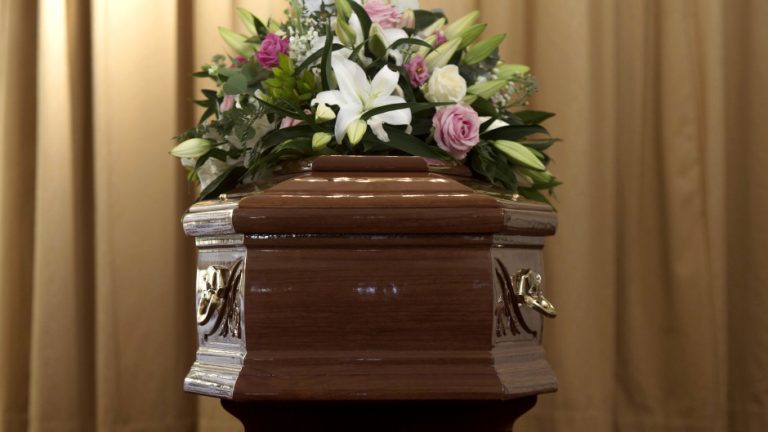 Stornoway funeral director Alasdair Macrae said: “There have been one or two families who have done it themselves.
Stornoway funeral director Alasdair Macrae said: “There have been one or two families who have done it themselves.
“They have video-called family, but no one has requested it from us.
“The mobile network coverage here is quite poor, so I am not sure how it would even work.”
It is not solely a problem in the Western Isles, with those in Shetland suffering similarly.
Jamie Goudie, of Goudies Funeral Directors in Lerwick, said: “There have been a couple of people who have filmed the service for family to watch.
“We have not done a lot of online services but there might be an uptake as most boats and flights are not running just now.
“The connectivity is not the strongest here to be able to offer it.”
Across the north-east and Highlands, however, the benefits of video-calling technology, which has come to the fore in all aspects of life during the crisis, have extended to the bereaved.
John Fraser and Son in Inverness has highlighted its use of Skype to include those unable to travel to its Chapel Street funeral home, while Robert Mackie Funeral Directors in Peterhead has begun posting links to live-streams on its Facebook page if a family consents.
Undertakers Frank McLean and Son, who have chapels in Keith, Buckie and Aberlour, are long-time providers of the service, having had the equipment installed four years ago.
Director Philip McLean explained the concept had been a “great comfort” to people who would otherwise have missed out.
Aberdeen-based Mark Shaw noted a surge in requests for streaming of services too, although it was something mourners had asked for before.
“Things like recording and live-streaming of funerals has always been an option but until now, most people have emphasised being there in person,” he said.
“Now this is a new focus and we are being asked to record or live-stream the funerals a lot more.”
